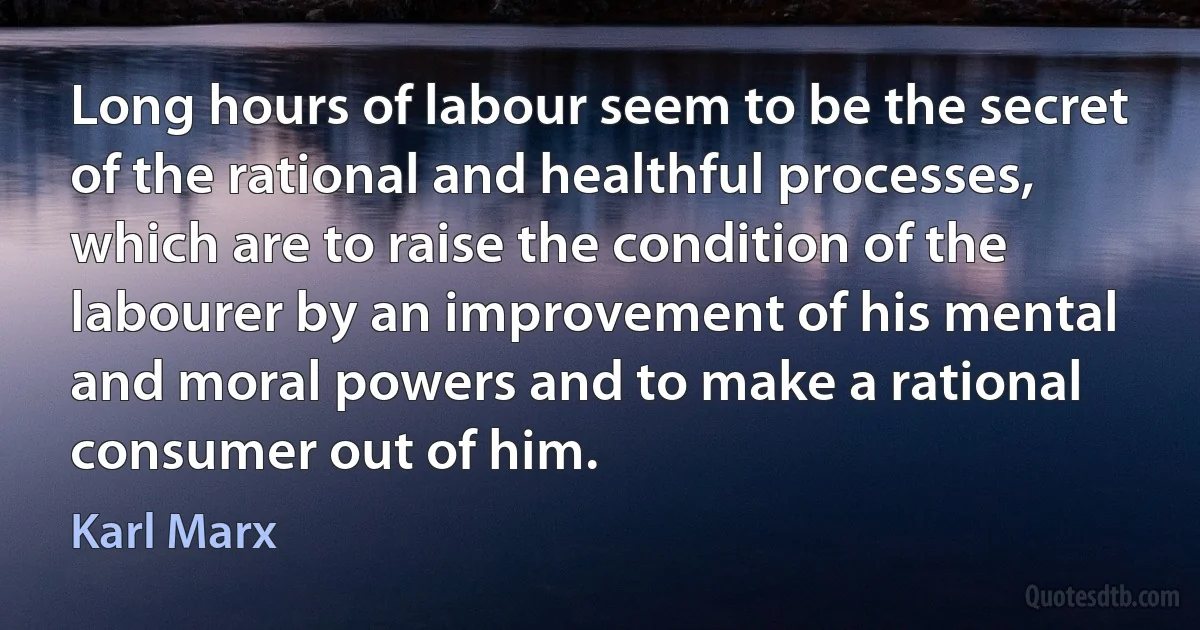Labourer Quotes - page 2
It has so happened in all ages of the world, that some have laboured, and others have, without labour, enjoyed a large proportion of the fruits. This is wrong, and should not continue. To each labourer the whole product of his labour, or as nearly as possible, is a most worthy object of any good government.

Abraham Lincoln
I had been journeying to and fro on the face of a fine broad bit of English earth, seeking what wages I could earn, what work I could get, and what facts I could devour. I found, I got, I devoured, every morsel which came in my way. I read, marked, learned and inwardly digested, as the prayer book says somewhere, all I could lay my hands or ears or eyes on. At the same time I was taking in a supply of facts which would not be digested-tough facts about the land and the labourer, that accumulated and lay within my mind, heavy as a lump of lead, and hard as a stone. No matter what I did, whether I was working with my hands or my head, that mass of indigestible facts was always in the background, worrying and bothering me. I got no peace; it worried and bothered me more and more as each year went by.

Joseph Arch
When a labourer could no longer work, he had lost the right to live. Work was all they [the landowners] wanted from him; he was to work and hold his tongue, year in and year out, early and late, and if he could not work, why, what was the use of him? It was what he was made for, to labour and toil for his betters, without complaint, on a starvation wage. When no more work could be squeezed out of him, he was no better than a cumberer of other folk's ground, and the proper place for such as he was the churchyard, where he would be sure to lie quiet under a few feet of earth, and want neither food nor wages any more.

Joseph Arch
The dominant, almost general, idea of revolution - particularly the Socialist idea - is that revolution is a violent change of social conditions through which one social class, the working class, becomes dominant over another class, the capitalist class. It is the conception of a purely physical change, and as such it involves only political scene shifting and institutional rearrangements. Bourgeois dictatorship is replaced by the "dictatorship of the proletariat" - or by that of its "advance guard," the Communist Party. Lenin takes the seat of the Romanovs, the Imperial Cabinet is rechristened Soviet of People's Commissars, Trotsky is appointed Minister of War, and a labourer becomes the Military Governor General of Moscow. That is, in essence, the Bolshevik conception of revolution, as translated into actual practice.

Emma Goldman
The Labour party is no class champion. In politics it is frankly democratic, in economics it is co-operative... It was not bought into being to revenge the wage-earner and mercilessly smash the capitalist... Capitalist and labourer alike feel that some new order must evolve if England is to exist.

Ramsay MacDonald


